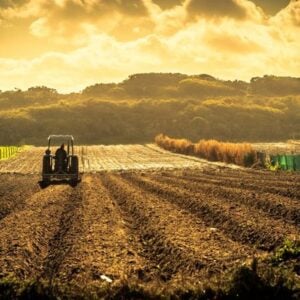The World Wildlife Fund (WWF) is advancing efforts to protect wildlife habitats while boosting food security by encouraging farmers in the mid-Mississippi Delta to shift from commodity row crops to specialty food crops. This initiative, now organized under the Delta Ag Alliance, brings together farmers, startups, retailers, and investors to create a regional framework supporting farmland transition. The mid-Mississippi Delta, covering eastern Arkansas, western Tennessee, and northwestern Mississippi, has the potential to generate an additional $3.2 billion in annual farmgate revenue by 2034 if just 3% of its farmland is converted to specialty crops. This shift would not only enhance the region’s economic prospects but also reduce reliance on California for fruits, vegetables, and nuts, mitigating risks posed by droughts and wildfires.
Over the past six years, WWF’s Markets Institute and AgLaunch, a farmer-focused innovation platform, have worked to evaluate the feasibility of specialty crop production in the region through the Next California project. This collaboration included connecting farmers with buyers, supporting new investment models, and fostering innovation. The newly branded Delta Ag Alliance will lead the next phase, partnering with the Center for MS Food Systems, to expand networks, accelerate business development, and provide farmers with technical and financial support, while WWF continues in a supporting role.
The pilot project with Delta Harvest tested specialty rice varieties that utilize existing farm equipment while yielding higher premiums. In 2024, three farmers planted over 20 specialty rice varieties, producing 3.56 million pounds of rice, earning an average revenue of $1,250 per acre and a profit of about $100 per acre—compared to losses on conventional medium-grain rice. The pilot expanded from 750 acres in 2024 to 1,500 acres in 2025, demonstrating the economic viability of specialty crops and the potential for broader adoption.
Local experts emphasize that small farmers often struggle to make ends meet growing commodity crops, making specialty crops a pathway to more sustainable incomes. The Delta Ag Alliance seeks to de-risk this transition by connecting farmers to buyers, building infrastructure, and ensuring access to research and innovative agricultural technologies. The alliance’s 10-year roadmap envisions a supportive business environment that stimulates new agtech startups, encourages farmer-driven innovation, and creates the investment networks necessary to scale specialty crop production profitably.
By combining innovation, collaboration, and targeted investment, the Delta Ag Alliance aims to transform the mid-Mississippi Delta into a model for equitable, sustainable rural economies while contributing to U.S. food security and wildlife habitat protection. The WWF’s Next California reports detail the progress and lessons from each project phase, highlighting the region’s capacity to lead in specialty crop production.







